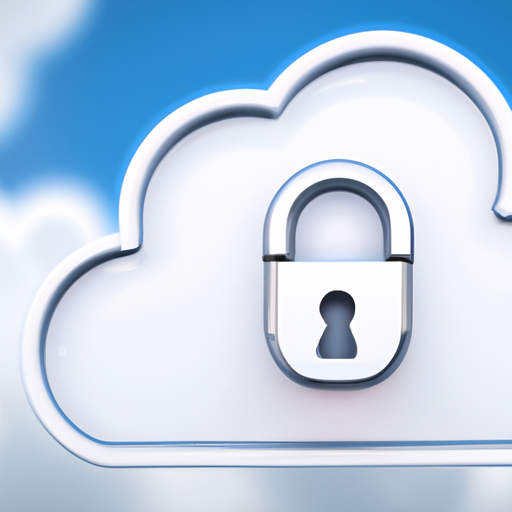-
Table of Contents
- Introduction
- The Importance of Keeping Your Software Up-to-Date to Protect Your Data Online
- How to Avoid Phishing Scams and Other Online Frauds
- Best Practices for Protecting Your Online Identity
- How to Securely Store and Backup Sensitive Information Online
- The Benefits of Using Strong Passwords to Protect Sensitive Information Online
- Conclusion
“Secure Your Data – Follow Best Practices for Protecting Personal and Sensitive Information Online”
Introduction
Protecting personal and sensitive information online is an important part of staying safe and secure in the digital world. With the increasing use of the internet, it is essential to understand the best practices for protecting your data. This guide will provide an overview of the best practices for protecting personal and sensitive information online, including tips for creating strong passwords, using two-factor authentication, and avoiding phishing scams. Additionally, it will provide resources for further information and guidance on how to protect yourself online.
The Importance of Keeping Your Software Up-to-Date to Protect Your Data Online
Keeping your software up-to-date is one of the most important steps you can take to protect your data online. Outdated software can be vulnerable to malicious attacks, leaving your data exposed to hackers and other cybercriminals.
When software is updated, it often includes security patches that help protect your data from being accessed by unauthorized users. These patches are designed to fix any security flaws that may have been discovered in the software. Without these patches, your data could be at risk.
Software updates also often include new features and bug fixes that can improve the performance of the software. This can help ensure that your data is being stored and processed securely.
In addition to keeping your software up-to-date, it’s also important to use strong passwords and two-factor authentication to protect your data. This can help prevent unauthorized access to your accounts and data.
Finally, it’s important to be aware of the latest security threats and to take steps to protect yourself. This includes avoiding suspicious links and emails, using secure networks, and being aware of phishing scams.
By taking these steps, you can help ensure that your data is safe and secure online. Keeping your software up-to-date is an important part of this process, and it’s essential to protecting your data.
How to Avoid Phishing Scams and Other Online Frauds
Online frauds and phishing scams are becoming increasingly common, and it’s important to know how to protect yourself. Here are some tips to help you stay safe online:
1. Be wary of emails and messages that ask for personal information. Legitimate companies will never ask for your passwords or credit card information via email.
2. Don’t click on links or download attachments from unknown sources. These could contain malicious software that can steal your personal information.
3. Use strong passwords and change them regularly. Avoid using the same password for multiple accounts.
4. Use two-factor authentication when available. This adds an extra layer of security to your accounts.
5. Be careful when shopping online. Make sure the website is secure and look for signs that the company is legitimate.
6. Monitor your credit card and bank statements regularly. Look for any suspicious activity and report it immediately.
By following these tips, you can help protect yourself from online frauds and phishing scams. Stay safe online!
Best Practices for Protecting Your Online Identity
1. Use strong passwords: Create strong passwords that are at least 8 characters long and include a combination of upper and lowercase letters, numbers, and symbols. Avoid using personal information such as your name, birthdate, or address.
2. Use two-factor authentication: Whenever possible, enable two-factor authentication on your accounts. This adds an extra layer of security by requiring you to enter a code sent to your phone or email address in addition to your password.
3. Be careful what you share online: Be mindful of what you post on social media and other websites. Don’t share personal information such as your address, phone number, or financial information.
4. Monitor your accounts: Regularly check your accounts for any suspicious activity. If you notice anything out of the ordinary, contact the company immediately.
5. Use a VPN: When using public Wi-Fi, use a virtual private network (VPN) to encrypt your data and protect your online identity.
6. Be aware of phishing scams: Be wary of emails or messages that ask for personal information or contain links to suspicious websites.
7. Use secure websites: When making online purchases, make sure the website is secure by looking for the “https” in the URL.
8. Update your software: Make sure your operating system and other software are up to date to protect against the latest security threats.
How to Securely Store and Backup Sensitive Information Online
Storing and backing up sensitive information online can be a tricky task. It’s important to make sure that your data is secure and protected from unauthorized access. Here are some tips to help you securely store and backup sensitive information online.
1. Use a secure cloud storage provider. When storing sensitive information online, it’s important to use a secure cloud storage provider. Look for a provider that offers encryption, two-factor authentication, and other security features.
2. Use strong passwords. Make sure to use strong passwords for all of your online accounts. Avoid using the same password for multiple accounts and use a password manager to help you keep track of them.
3. Use a VPN. A virtual private network (VPN) can help protect your data from being intercepted by hackers. Make sure to use a reputable VPN provider that offers strong encryption and other security features.
4. Backup your data regularly. It’s important to regularly backup your data in case of an emergency. Look for a cloud storage provider that offers automated backups so you don’t have to worry about manually backing up your data.
5. Monitor your accounts. Make sure to regularly monitor your accounts for any suspicious activity. If you notice anything out of the ordinary, contact your cloud storage provider immediately.
By following these tips, you can help ensure that your sensitive information is securely stored and backed up online.
The Benefits of Using Strong Passwords to Protect Sensitive Information Online
Using strong passwords to protect sensitive information online is one of the most important steps you can take to protect yourself and your data. Strong passwords are essential for keeping your accounts secure and preventing unauthorized access to your personal information. Here are some of the benefits of using strong passwords to protect your sensitive information online:
1. Increased Security: Strong passwords are much harder to guess or crack than weak passwords. This means that your accounts are much less likely to be compromised by hackers or other malicious actors.
2. Improved Privacy: Strong passwords help to keep your personal information private. This means that your data is less likely to be accessed by unauthorized individuals or organizations.
3. Reduced Risk of Identity Theft: Strong passwords can help to reduce the risk of identity theft. This is because it is much harder for someone to gain access to your accounts and use your personal information for fraudulent purposes.
4. Enhanced Peace of Mind: Knowing that your accounts are secure and your personal information is safe can give you peace of mind. This can help to reduce stress and anxiety associated with online security.
Using strong passwords to protect your sensitive information online is an important step in keeping your accounts secure and your data safe. Taking the time to create strong passwords and regularly updating them can help to ensure that your accounts remain secure and your personal information remains private.
Conclusion
In conclusion, best practices for protecting personal and sensitive information online include using strong passwords, enabling two-factor authentication, avoiding public Wi-Fi networks, using a VPN, and being aware of phishing scams. Additionally, it is important to keep software and operating systems up to date, use secure payment methods, and be mindful of the information shared on social media. By following these best practices, individuals can help protect their personal and sensitive information online.




